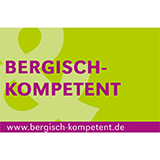Many companies have yet to realize the benefits of having women in leadership, but some have already – like Babtec. “We want to become more diverse,” says the HR manager. Diversity in top management sends a signal to the outside world, she says, and increases employees’ willingness to develop within the company. “It promotes better leadership and better overall performance,” Henkel says, citing studies. With the proportion of women in the IT sector up, albeit relatively low, compared to last year, the company has set itself the goal of increasing its attractiveness as an employer in the highly technical environment and specifically targeting women. In addition to modern working conditions, which follow the New Work idea with open creative spaces and light-flooded workspaces, the measures include, for example, flexibilization options for employees. “Flexible working hours and self-determination of work location and time pay directly into satisfaction and promote the willingness of people in an organization to restructure themselves,” says Henkel. And that makes access easier for women.









Comments
No comments